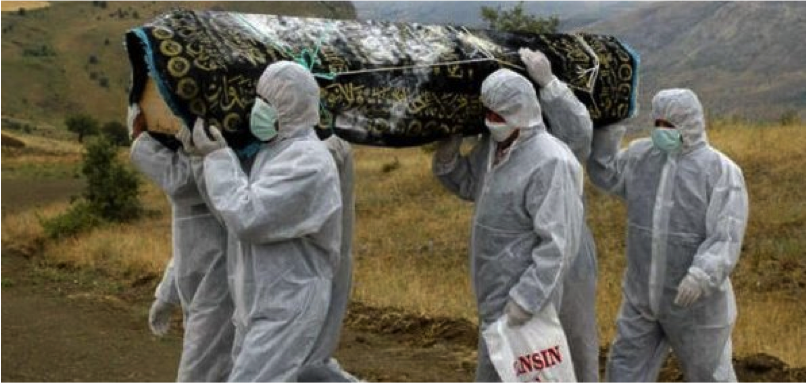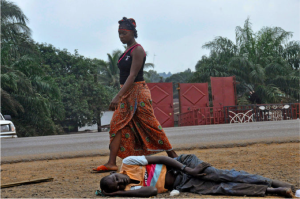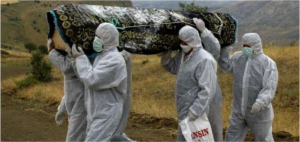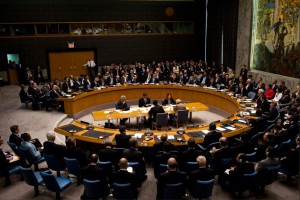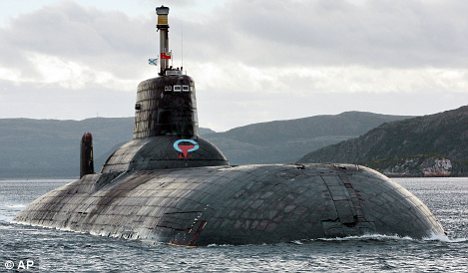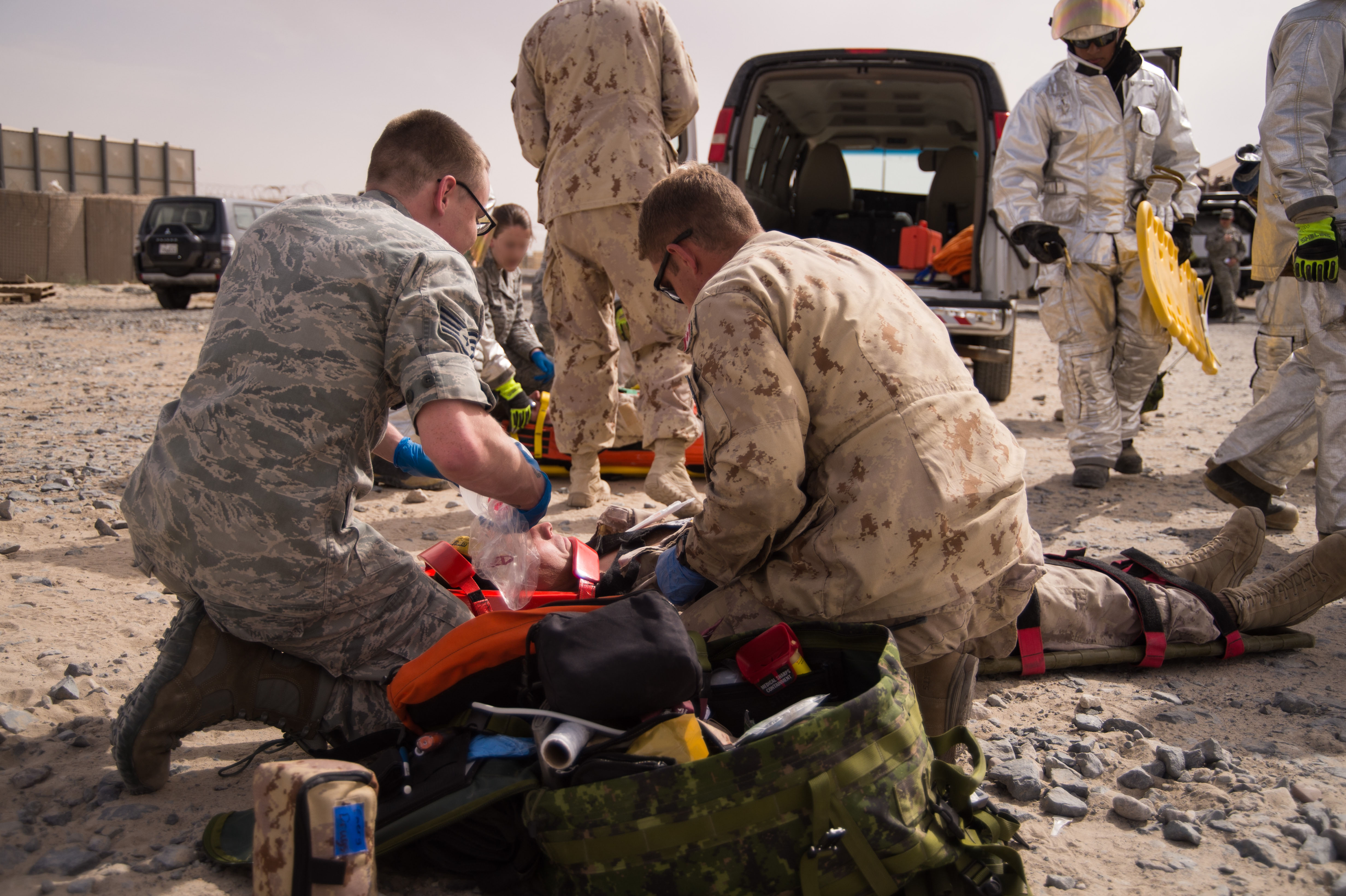The Ebola virus has caused large–scale humanitarian devastation in the Western African nations of Sierra Leone, Guinea, and Liberia.
In Liberia, the virus continues to “spread like wildfire” and is threatening “a biological war.”The country, with a population of approximately 4 million people suffered more than 50% of the epidemic’s deaths. On Monday, September 8, 2014, the World Health Organization (WHO) announced that thousands of new cases are expected to appear within the next three weeks, as conventional methods to control the outbreak have not been successful. Since the outbreak, 169 Liberian healthcare workers have been infected, and 79 have died. This is a significant blow to the already fragile health care system, as the Liberian doctor-patient ratio; prior to the outbreak was 1 doctor per 100,000 people.
At a news conference on Thursday September 11, 2014, Finance Minister Amara Konneh said that Liberia is at “war with an enemy we don’t see.” Defence Minister Brownie Samukai echoed these sentiments, stating that the country is facing a serious threat to its national existence. As the virus destroys everything in its path, overwhelming the already weak health care infrastructure of the country, the epidemic is the most serious threat the country has faced since the end of the civil war in 2003.
Experts have indicated that the country’s political, economic, and social issues have intensified, and may become more evident in the coming weeks depending on how the epidemic spreads and how effective efforts are to control it, or at least slow it down. So far, there has been dissatisfaction with how authorities have handled the situation. Recently, President Ellen Johnson Sirleaf and the government were blamed for not providing adequate conditions to patients after an escaped patient was found wandering the streets looking for food because the hospital could not feed him.
A similar situation is taking place in Guinea, where 771 cases of Ebola have been detected so far and where 494 people have died. The Guinean government declared a national health emergency on August 14, 2014.
By mid-August, Ebola had killed more than 1,000 people in West Africa amid fears that the epidemic would spread to East Africa. The outbreak initially began in Guinea in February, 2014. The country’s President Alpha Conde warned that people in contact with Ebola victims were “formally banned from leaving their homes until the end of their surveillance period.” Anyone who disobeyed the rules would be considered “a threat to public health and will face the might of the law.” Lack of medical supplies and staff, who have also been severely affected by the virus, only exacerbate the situation.
The virus so far defeated efforts by governments to control it, and has prompted Doctor’s Without Borders, the leading organization fighting the epidemic, to call for the United Nations Security Council to take on the situation. The WHO issued a warning that the actual number of cases could be up to four times higher than officially reported, and that a total of 20,000 people could be infected before the outbreak ends. While a strategy for battling the virus emerges and while an experimental vaccine is tested, the UN plans to use Ghana as a base for supplies bound for affected countries, according to a statement issued by the office of the President of Ghana.
The Ebola virus continues to spread in Western Africa as governments are struggling to contain the outbreak. Despite international assistance from the World Health Organization, Doctors Without Borders, and the United Nations, containment efforts appear so far to have a limited effect.

